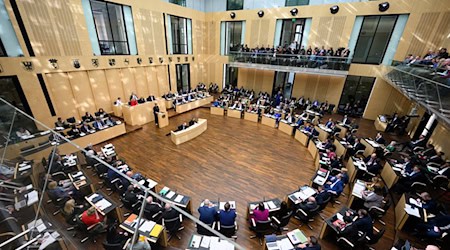A few months before the early general election, the Verdi trade union is planning an extraordinary alliance with public employers. Local authorities in Saxony, Saxony-Anhalt and Thuringia are in a dramatic financial situation for which a solution urgently needs to be found, announced Verdi regional branch manager Paul Schmidt. "Eight out of ten districts in Saxony are de facto bankrupt." The situation is similarly precarious in Saxony-Anhalt and Thuringia.
The union therefore wants to make a joint appeal to the federal government before the federal elections on February 23 to improve municipal funding. Verdi's proposal to the public employers: "Despite all our differences, we should adopt a common position in the federal election campaign and make the solution to this problem a central campaign issue." Verdi wants to invite the employers to a joint meeting as soon as possible in order to formulate joint demands to politicians.
VAT as a lifeline?
"Even with small changes to the distribution formula, we could really provide relief, but it has to be politically desirable," emphasized Schmidt. As an example, he cited the increase in the municipal share of VAT from 5.5 percent to 6.5 percent. This alone could mobilize three billion a year.
The appeal, which is expected to be finalized this week, is aimed at mayors, district councils and representatives of public companies. After internal coordination, the message will then be brought to Berlin as soon as possible for the election campaign.
Verdi is counting on broad support and hopes that employers will take the union's outstretched hand to work together on a solution for funding. "That would be a powerful signal - not only from the union, but also from the employers," explained Schmidt.
Threatening consequences if the appeal is rejected
If the employers are not prepared to sign the appeal, then this would be "a message for the collective bargaining round in the public sector". "If the employers do not accept this outstretched hand, they will not be able to convince us that funds are really tight," said Schmidt. Obviously, the pressure of suffering in this case is not yet great enough.
Copyright 2024, dpa (www.dpa.de). All rights reserved










